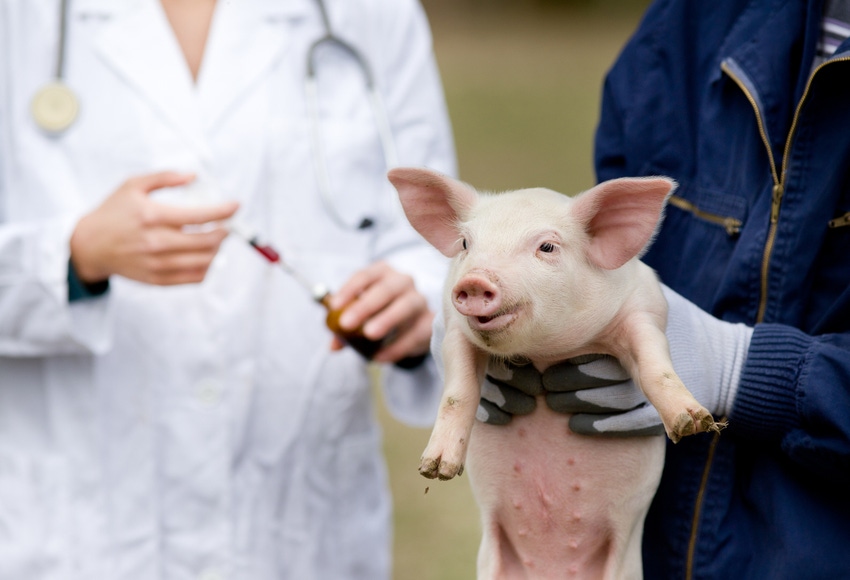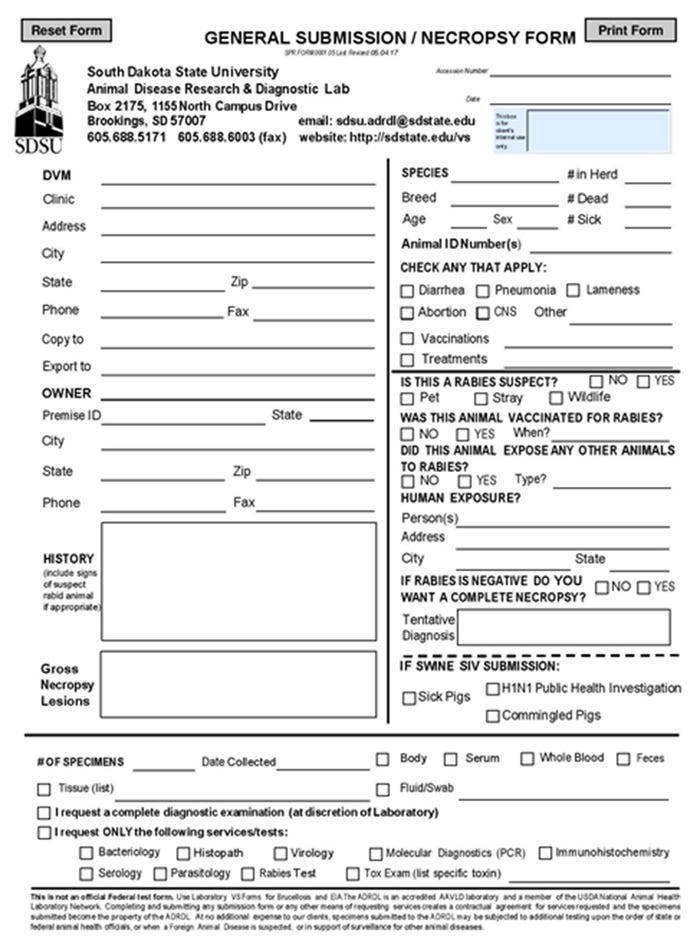Diagnostic laboratories an integral part of your herd health team
Working as a team, veterinary diagnostic laboratories can help hog producers achieve better health for their animals.
November 21, 2017

By Dale W. Miskimins, South Dakota State University Animal Disease Research & Diagnostic Laboratory
Veterinary diagnostic laboratories exist to help producers and their veterinarians identify disease problems and to monitor the health status of their animals. Harvesting tissues can be done on the farm with basic anatomy skills and direction by the herd veterinarian. Whole animal carcasses and sick animals can also be taken to the lab.
Selecting the proper specimens is critical. Acutely ill animals are the best to sample. Animals that are sick and treated with antibiotics may not be suitable. Animals showing typical clinical signs of the disease should be selected for sampling. Decomposed carcasses are often unsuitable. User guides and a list of services are readily available online.
Basic equipment is required including a sharp, clean knife, sample containers and gloves. Additional equipment may include rib cutters (long handled pruning shears usually work well on larger pigs). Brains can be removed with tools such as meat saws depending on the size of the animal. All containers should be labeled with animal identification numbers, pen numbers and unit names. Include a history form which will be online or available from your veterinarian. The history form from your lab should be filled out as completely as possible (see blank history form from our lab below). Samples should be refrigerated until delivery to the lab. Carriers do not tolerate leaking samples, so care must be exercised to prevent bloody and wet shipping containers.

Your veterinarian will train you if they want you to collect samples. An excellent illustrated resource which details sample collection is “Swine Disease Diagnostic Manual” from Newport Laboratories. It is a free download.
Finally, working as a team we can help you achieve better health for your animals.
You May Also Like



